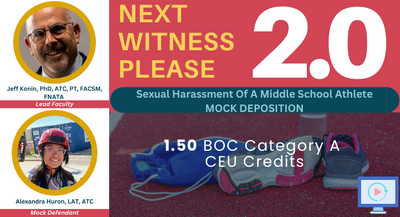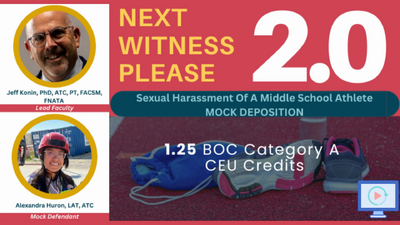General Course Information
Learning Material
1:31:18
AI Chat Bot
The chat bot may hallucinate. Please double check results.
Next Witness Please 2.0: Sexual Harassment of a Middle School Athlete MOCK DEPOSITION › Learning Material
Presentation (Video)
Updated Jan 22, 2024
Copyright © 2025 Action Medicine Consultants, LLC
___MESSAGE___
___MESSAGE___


